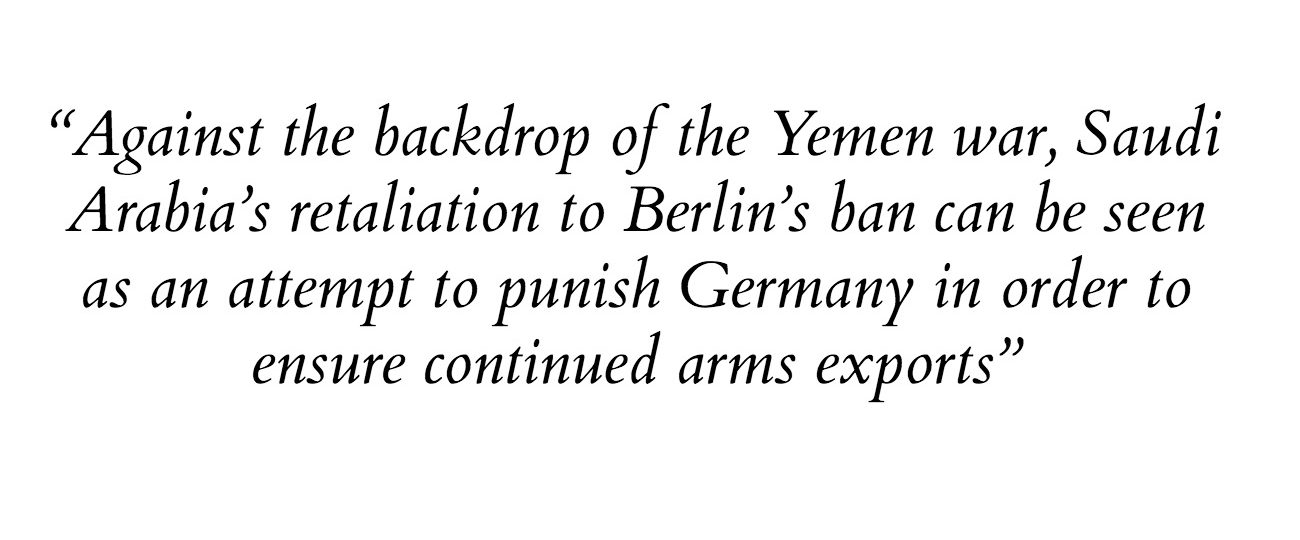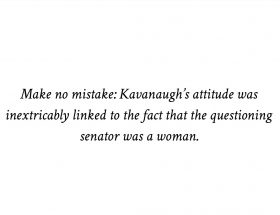At a time where Saudi foreign policy is caricatured as nothing short of brutish and hyperbolic, the recent reconciliation of Saudi-German relations on the sidelines of the United Nations General Assembly offers an alternative perspective.
Chronicling The Developments
Comments made by Germany’s Foreign Minister, Sigmar Gabriel, in November 2017 initiated a cascading deterioration in Saudi-German relations. After meeting with Lebanon’s Foreign Minister, Gabriel stated that Europe “could not tolerate the adventurism that has spread there.” Riyadh, seeing the comments aimed at them, recalled its ambassador to Germany to clarify the matter and explore how to move forward.
Relations only tensed. Owing to domestic pressure, Berlin announced it would no longer export arms and military equipment to actors embroiled in the war on Yemen. Riyadh did not take kindly to the ban, seeing it as a two-pronged criticism towards its military conduct and chosen method in conflict-resolution. In response, Riyadh began excluding non-essential contracts with German firms.
Gears suddenly shifted when, just four months later, Berlin confirmed it would provide Riyadh with four armoured vehicle artillery positioning systems in direct violation of its own ban. The more pertinent development, however, was the joint Saudi-German press conference, with Germany stating: “We should have been clearer in our communications and engagement in order to avoid such misunderstandings [and] we’ll do our best to make this partnership … stronger than before” in addition to “intensifying [our] dialogue.” No doubt pleased with the outcome, Saudi confirmed Germany’s announcements and invited their counterparts to Riyadh to explore viable areas of development.
Considering Saudi Arabia’s Response
Two traits are worth teasing out from Saudi’s engagement.
Saudi Arabia’s displeasure with Germany’s comments was not followed by complete severance of economic and diplomatic relations as with Qatar earlier that year. Nor did it castigate Germany as with Canada.
Against the backdrop of the Yemen war, Saudi’s retaliation to Berlin’s ban can be seen as an attempt to punish Germany in order to ensure continued arms exports. This, however, assumes Saudi needed German arms. Data compiled by Stockholm International Peace Research on arms flow between 2015 to 2017 shows that German arms account for 1% of Saudi Arabia’s entire imports; in contrast, France and the United States represent 3% and 67%, respectively. Saudi, therefore, was not in desperate need for German arms and could have turned to either France or the United States to fill the gap.
While not in urgent need, Saudi looks at its arms trade as a proxy of its overall relations. While Saudi and Germany do not have an extensive and deep-rooted relationship as Saudi does the United States, nor are there any ethnic, familial, linguistic, or religious bonds tying them together as with its Middle Eastern neighbours, there is nonetheless considerable exchange in the form of knowledge, expertise, and personnel, particularly in the healthcare sector. Saudi’s retaliation and its specification on non-essential contracts, then, is better understood as a superficial ‘tit for tat’ designed not to punish but rather save face and maintain a posture of strength whilst underscoring what it sees as nonsensical endangerment of mutually beneficial trade for the sake of the citizenry’s sway.
A New Way In Dealing With Foreign Relations?
Contrary to the popular portrayal of Saudi foreign policy as unhinged and hyperbolic, the tussle with Germany gives credence to the claim that Saudi has more control and finesse than people award it. Others have made similar observations regarding Saudi-Iraq relations, showing how the former has capitalised on a series of positive inducements with various stakeholders in forging a new relationship for the coming future. The relative timing of these two events suggests an emerging foreign policy doctrine characterised by dialogue, goodwill, couched outside domestic influence.
There is, however, another perspective. One notices a stark contrast when comparing Saudi’s responses to the Yemen conflict and Qatar with Germany and Iraq. When displeased or distraught, states negotiate with and convey their demands to, their counterparts, beginning at a minor level and gradually escalating till reaching a point where one of the two gives in. Saudi appears to be ignoring this process, opting instead to present what it considers to be the final tolerable point and telling their counterparts to, effectively, ‘take it or leave it’. While such an approach has been advantageous in relation to Germany, when miscalculations do occur, they will likely lead to insurmountable financial costs and a series damaging of public relations, such as in Yemen.
One of these two perspectives will come to characterise the contours of Saudi foreign policy. The international community and the Middle East regions security guarantors should be ready for whichever one it is. If it is the positive-diplomatic stream, then Saudi can appropriate a bigger share of the region’s security structure and advantageously orient it towards what it considers to the region’s threat; namely, Iran. If the latter, however, there may come a point where the costs of miscalculation prove too high to pay. And that is a point no-one, neither policy-maker nor citizen, wants to experience.
Only time will tell what the future holds.




